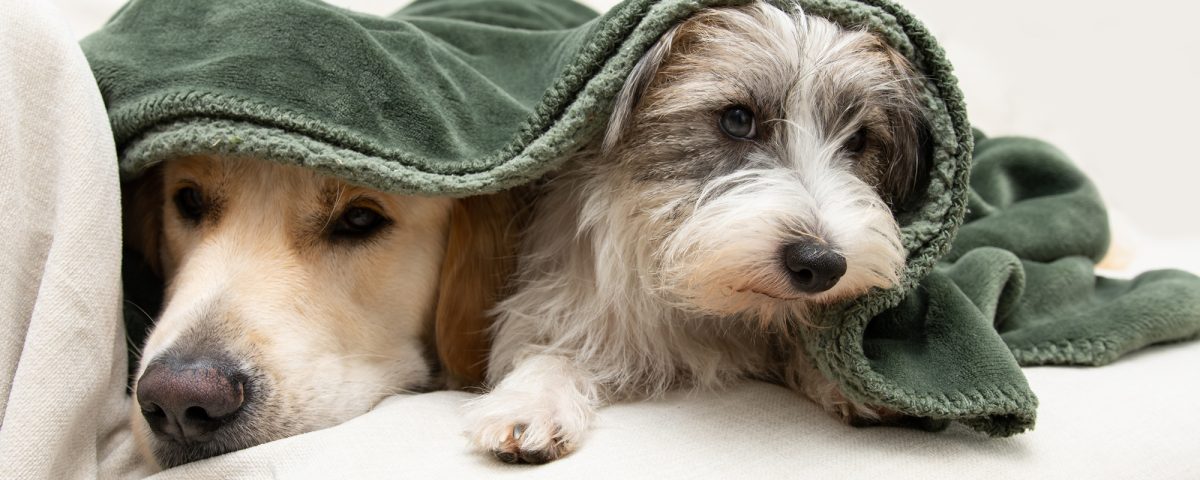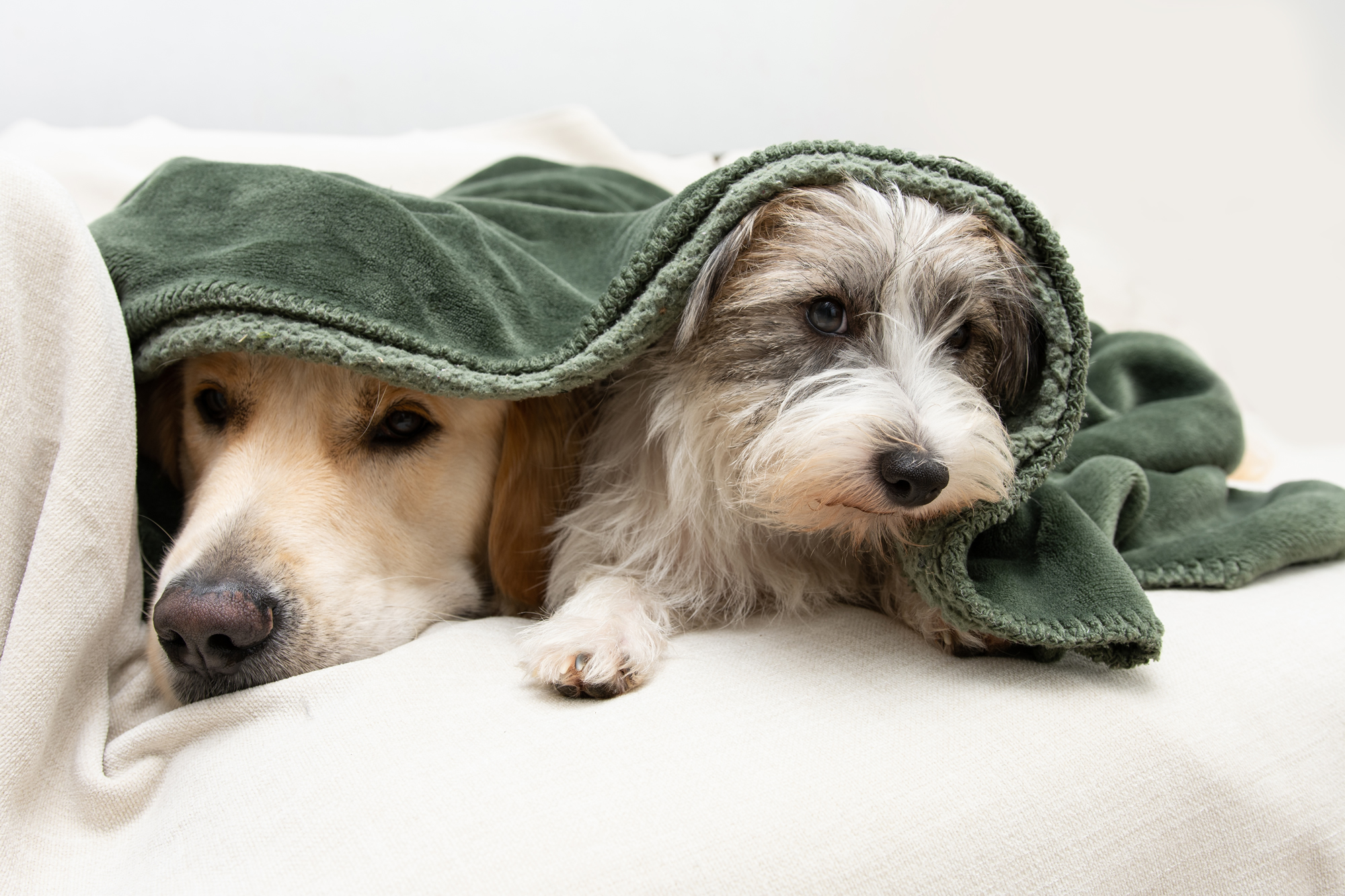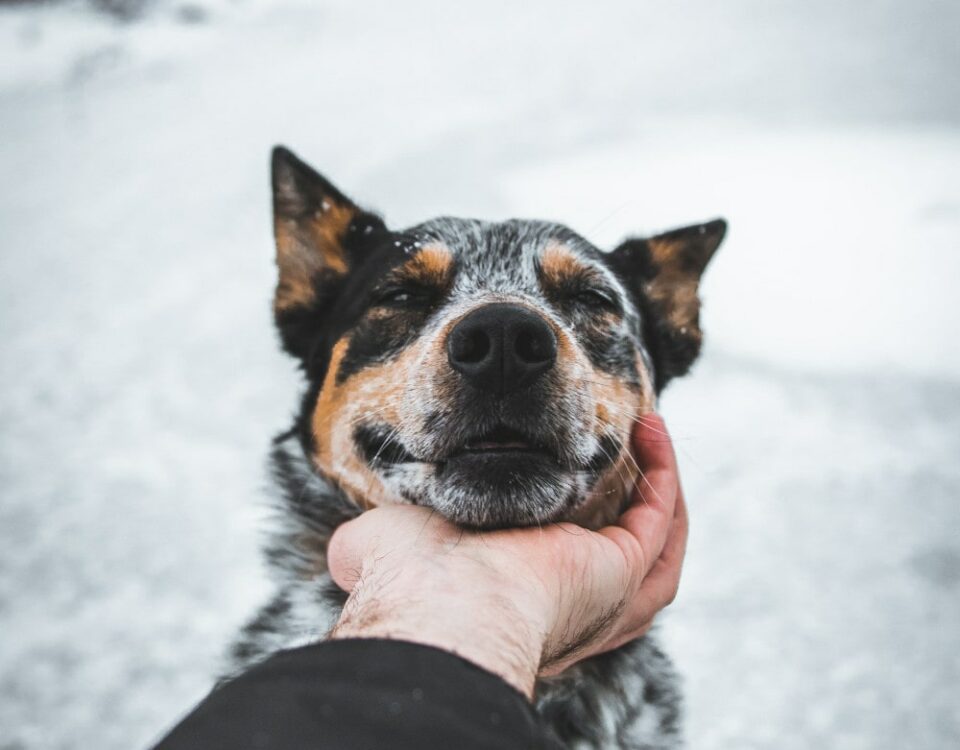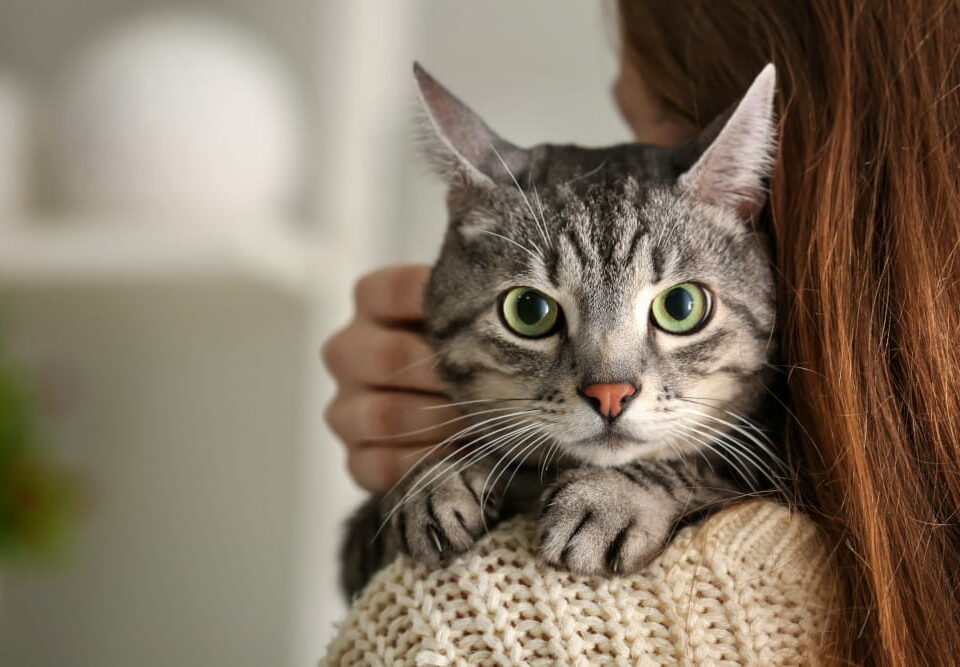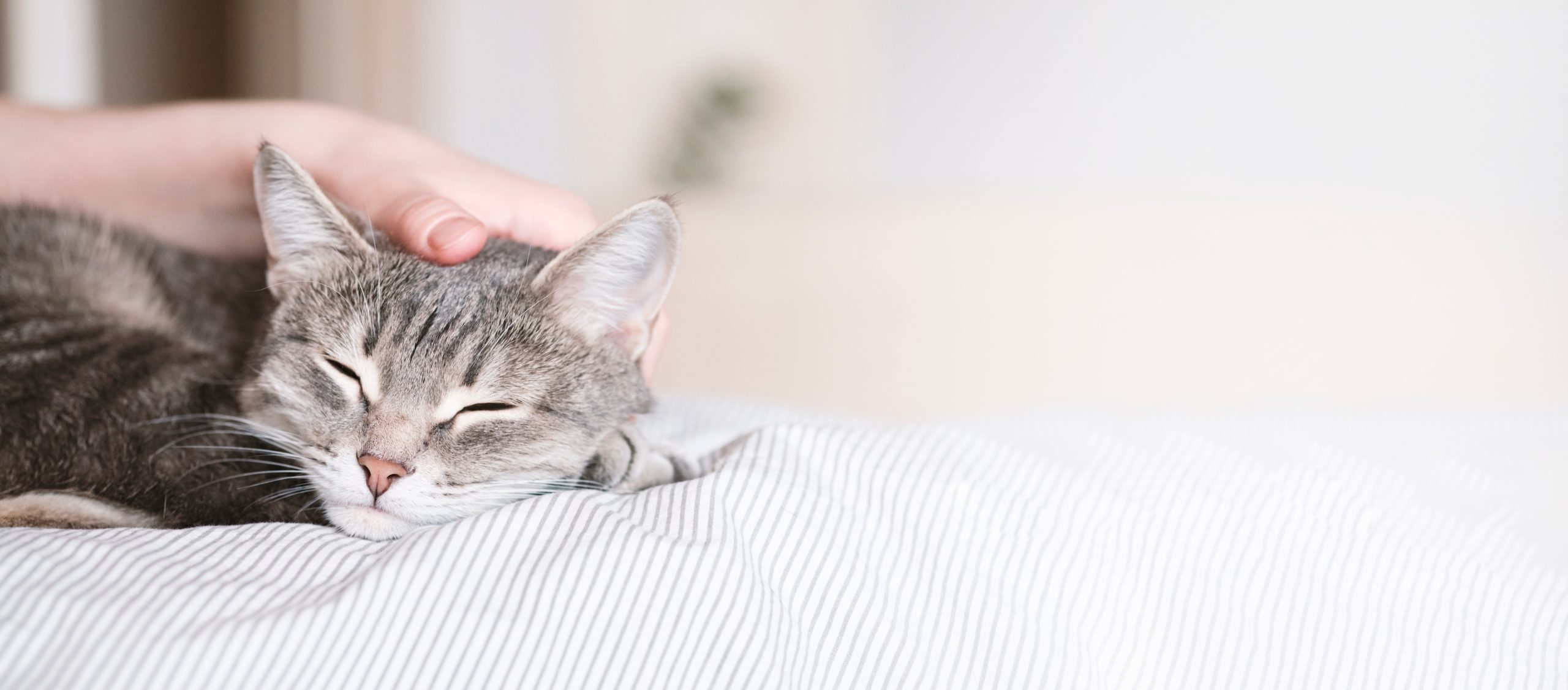
My Cat is Sleeping More, What Does This Mean?
October 19, 2022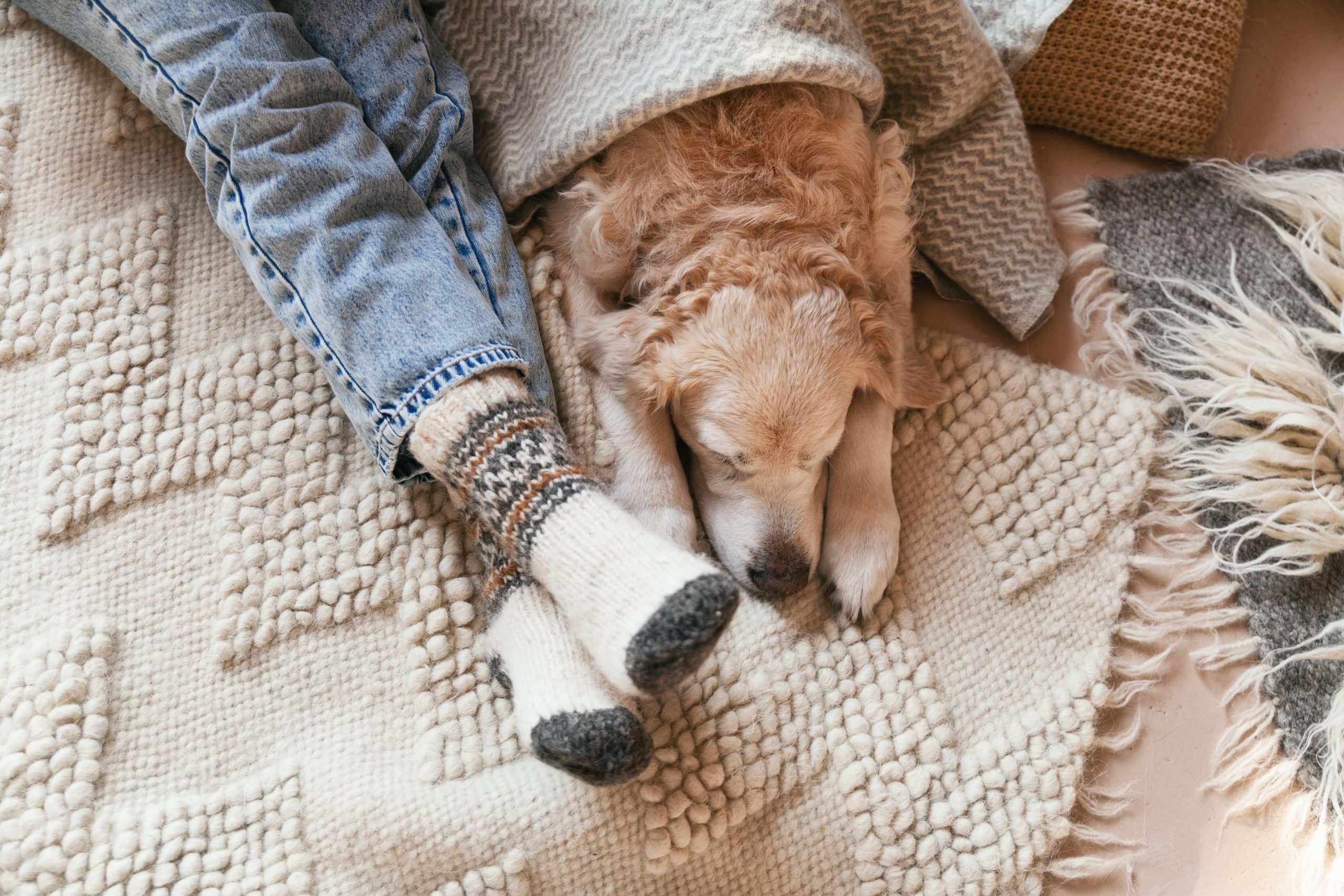
How to keep older pets comfortable during the winter?
November 23, 2022Fireworks season can be a lot of fun for humans and brings some festivities into the dark winter months, but for our animal friends it can be a stressful time. You may find that their fears about fireworks and loud noises in general get worse as they get older and there are a few reasons for this. Cognitive decline can make them feel more anxious generally and this can be made worse by the loud noises and bright lights from firework displays. Poor eyesight or hearing can mean that they are startled more easily, whilst discomfort from arthritis may leave them feeling more unsettled generally. Luckily, there are plenty of things that you can do to help your older pet through this potentially tricky time of year.
Firstly it’s important to be ready in advance and to start preparing a few weeks before the first fireworks are likely to begin. Consider setting up a safe space or den for your pet. This should be an area that they can retreat to when they feel worried. It should have familiar bedding and some favourite toys. Dogs may find a long lasting treat that they can chew on soothing. Ideally the area should be covered to create a dark cosy space for them. Stay nearby when they are in their safe space, but don’t force them to come in or out of it unless they wish to. Cats often prefer to choose their own place to feel safe and shouldn’t be restrained or forced to stay somewhere they may not want to be. They may prefer to find a place up high where they feel safer, but do ensure they don’t get stuck anywhere, particularly if they struggle to jump due to arthritis. Ensure they have easy access to a litter tray so they don’t need to go outside to the toilet.
As fireworks season approaches, get into the habit of taking dogs for their last walk earlier in the evening whilst it is still light. If they need to go to the toilet later, allow them access to your garden or a sheltered area but make sure that it is secure and take them out on a lead in case they become frightened. Cats should be kept indoors from the early evening. Ensure your pet is microchipped in accordance with the law and that your details are up to date on the microchip database. Should the worst happen and they manage to escape, they can then be quickly traced back to you.
If your pet has been previously upset by fireworks you might want to consider treatment to help them relax and feel less anxious. Pheromone diffusers can be used to reduce your pet’s anxieties, with Adaptil for dogs, Feliway for cats. These work by releasing a pheromone that can reduce feelings of anxiety. There are also a number of herbal preparations and gentle calming medicines available. They often need to be started before the fireworks begin, so have a chat with your veterinary surgeon well beforehand to see what they recommend.
On the night of the fireworks, feed your pet their evening meal just before dark, as a full tummy will help them feel more relaxed. Get them settled in or near their safe place and close blinds and curtains to reduce the intensity of the flashes. Put on some background noise such as the television or some music with a regular beat that will help to dull any bangs. Make sure doors and windows are closed and secure so that your pet can’t escape outside. You should ensure that someone will stay with your pets to ensure they are safe and to offer reassurance if they need it.
Some pets are very severely affected by fireworks despite all of the above measures. There are a range of anti-anxiety medications and mild sedatives that are safe and effective. These must be prescribed by a veterinary surgeon. In most cases they will need to examine your pet to ensure they have no underlying health conditions that could be adversely affected by the medications. They can then discuss what might be the best medications to help your pet. If your pet shows a sudden increase in anxiety or fear then it is definitely worth a trip to your vet to rule out physical problem, such as pain, or loss of sight that may be contributing to their worries.
Longer term you might want to consider some noise desensitisation or a session with a qualified animal behaviourist. Both of these approaches can be very effective but take time to work so are unlikely to be suitable for a rapidly approaching firework season.
Our ageing pets can certainly find fireworks season scary but with a little preparation, some simple adjustments and plenty of extra attention we can reduce their anxiety and make it an easier time of year they no longer have to dread.

